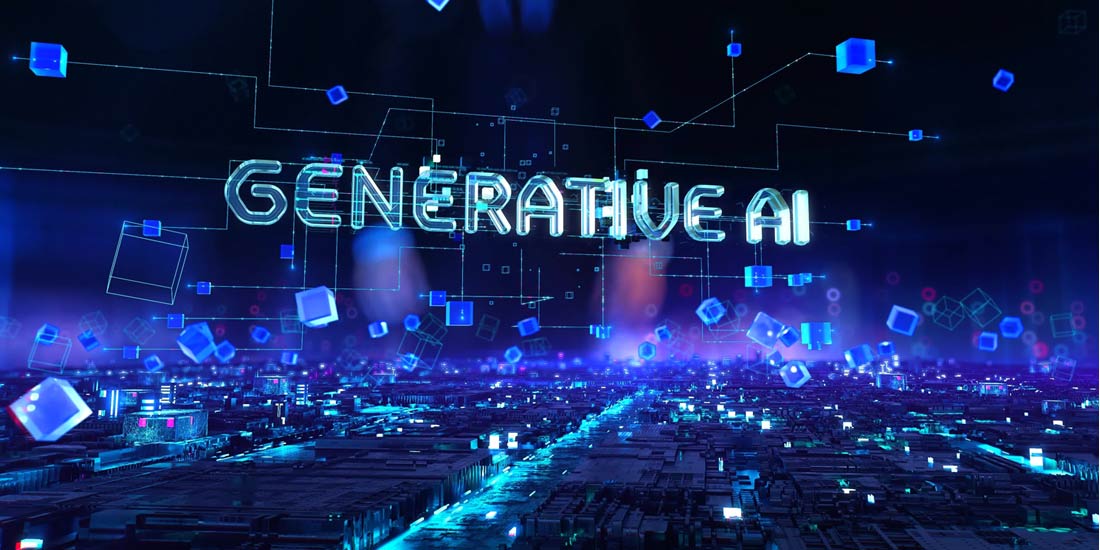The pressure on software developers is growing and skills shortages are increasingly impacting technical communities across all industries. With the urgent need for faster software delivery and enhanced code quality, development organizations of all shapes and sizes are looking for ways to increase productivity and reduce costs. Generative AI is one area of innovation that can help alleviate the challenges that developers face and enable organizations to stay ahead in today’s fast-paced technology landscape. Specifically, AI code assistants can help accelerate the software development lifecycle (SDLC), enhance productivity, and improve code quality through generative AI.
”High-quality developer experience has become a critical priority in software delivery, with 58% of software engineering leaders reporting that developer experience is “very” or “extremely” critical to the C-suite at their organizations, according to a survey by Gartner, Inc.” Additionally, high or unpredictable cost is the top risk that C-suite executives identify around new technology adoption. So, how can business leaders marry the need for increased efficiency and cost management while still prioritizing the incredibly important developer experience?
Let’s take a look at how AI code assistants can better support the developer experience, while reducing enterprise costs.
Accelerate the software development lifecycle
Developers are facing more pressure than ever to efficiently produce high-quality code, manage complex software development projects, and ensure compliance with evolving industry standards. Traditional methods, such as manual code development, testing, and review, often fall short in effectively addressing these pressures.
AI code assistants can help by offering generative AI-driven capabilities such as code generation, completion, debugging, and test case generation, to empower developers of all skill levels and increase their productivity. Other innovative capabilities, such as code explanation and code modernization can help to accelerate a developer’s understanding of existing code and help them to modernize legacy applications. These capabilities are especially helpful when working with decades-old programming languages like Assembler, COBOL, and RPG. All of these generative AI coding capabilities empower developers to focus on the more complex and creative aspects of their work while also closing critical knowledge gaps across their organizations.
AI code assistants for enterprise software development allow developers to navigate and enhance the SDLC, leading to faster delivery of software products and applications. These assistants can ultimately improve accuracy, increase quality, and enhance developer productivity.
Enhance developer productivity, even in the face of skills shortages
The focus on developer productivity is critical when considering gaps in developer skills and developer talent shortages. In fact, the Department of Labor forecasts that the global shortage of software engineers will reach 85.2 million by 2030. Considering that legacy coding languages, like COBOL, still comprise so much of today’s infrastructure across industries like banking and retail, AI code assistants can help organizations understand, maintain, and modernize legacy code and help to close even the largest generational skills gaps.
AI code assistants, powered by large language models (LLMs), can serve as pair programmers for developers. They can easily take on repetitive tasks like writing code and test cases, allowing the developer to focus on transformative projects and higher value work that can help drive greater business outcomes. Consequently, AI code assistants provide significant time savings by quickly delivering accurate and relevant results across the SDLC.
Manage costs and achieve profitability
Cost is often a big consideration in deploying new technologies like generative AI. However, the benefits offered by generative AI can result in greater efficiency and improved time-to-value. By accelerating development processes and minimizing the time it takes developers to generate quality software, businesses can achieve quicker returns on their investments with generative AI.
For example, companies that transition from on-premises to cloud-based infrastructure might face critical challenges such as ensuring data integrity and enabling smooth system integrations, often under tight timelines. In this scenario, an automation and agile-first strategy is crucial to expedite migration efforts. AI code assistants can be used to translate natural language into code, accelerating the creation of automation content. In turn, this enables companies to save thousands of hours in manual labor annually while significantly reducing development costs.
Don’t shy away from AI
Generative AI is increasingly becoming a core part of the developer experience and can lead to significant improvements in code accuracy, quality, and speed. Enterprises should consider adopting AI code assistants to enhance productivity and improve their software development processes, leading to greater developer satisfaction and improved software products and applications.
About the Author
Keri Olson is IBM’s Vice President of Product Management, AI for Code. She leads product management and strategy for IBM watsonx Code Assistant, driving transformative AI-powered solutions that accelerate software development, streamline IT automation, and enable seamless application modernization. Keri is passionate about technology and building innovative products that drive exceptional business outcomes for clients. She has over 20 years of experience in a variety of leadership positions across the IBM software business including product management, engineering, operations, and consulting, with a broad focus across IBM automation, middleware, business analytics, high performance computing, cloud, and AI. Keri is based in Rochester, Minnesota, where she enjoys volunteering in the community and mentoring others to help build the next generation of business and technical leaders.
Sign up for the free insideAI News newsletter.
Join us on Twitter: https://twitter.com/InsideBigData1
Join us on LinkedIn: https://www.linkedin.com/company/insideainews/
Join us on Facebook: https://www.facebook.com/insideAINEWSNOW
Check us out on YouTube!



